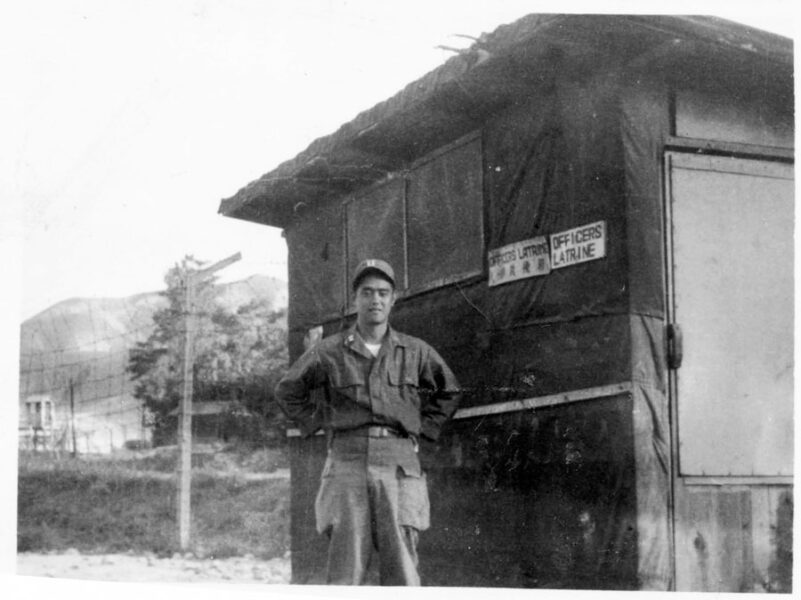
By Andrew Kumasaka, For The North American Post

for my father
To honor your country
means to take a slow boat
to South Korea
In a battle of latitudes
and latitude
the world has taken up sides again
The Golden Horde
The Yellow Peril
The human waves surging off the Chinese mainland
crest now in the north of what was called
“Chosen” — the hated name of domination
given during the brutal former occupation
by the polite
and recently vanquished
“Purei boru!”
Play hardball with us
From home plate in the States to bases
in Yokosuka and Okinawa
swinging for the fences along the 38th parallel
To honor your oath
means to take care of all your patients
even though they are the enemy
And all the prisoners of war interned here
have faces with that familiar
foreign look about them
For a backdrop — why not consider the broken
brown-skinned hills of Cheju-do
the bone-colored snow sticking out at angles
like the compound fractures of war
Stand here for a moment in your fur-lined cap
with flaps — in the bear-hug of a uniform coat
smiling brightly while being shot
by one of your own staff medic’s Nikon
Camp Surgeon with two silver bars on your shoulders
you make rounds on the latest acquisitions
The American guard paces back and forth — alert
looking for the sharp glint of trouble
the makeshift knife pulled on you
by a huddling crowd of vengeful Manchurians
What a potential for confusion
and ethnic misunderstanding
The Jap doc tending to Commie Chinks
who in turn are fighting on behalf of half
the Gooks in this land
of rotting cabbage
The American guard is more than observant
He saves your life
Another time
you creep up behind a sleepy sentry
an hour before the end of his watch
You poke him in the ribs — just for fun
another sneak attack at dawn as it were
He whirls white-eyed with a loaded rifle
and sees an Oriental face
And he should have blown you to kingdom come
but doesn’t — because somehow
even with his life on the line
he recognizes you
I beg you to tell me about the bad times growing up in America
I implore you to describe the humiliations and mistreatment
Instead you show me another stack of slides
of Cheju-do — the ordinary soldier boys stationed there
and the makeshift baseball games in fall
To honor your friends — to honor your team
means to be loyal
always


 Andrew Kumasaka was born in Chicago and grew up in Seattle. A psychiatrist, he retired after thirty years of private practice. His poems have appeared in various literary journals. His debut novel, “All Gone Awry,” was released in September 2021. He and his wife live in Soquel, California. They have two grown sons.
Andrew Kumasaka was born in Chicago and grew up in Seattle. A psychiatrist, he retired after thirty years of private practice. His poems have appeared in various literary journals. His debut novel, “All Gone Awry,” was released in September 2021. He and his wife live in Soquel, California. They have two grown sons.



